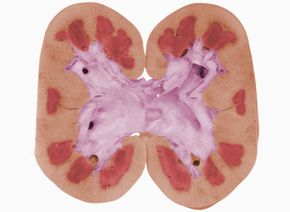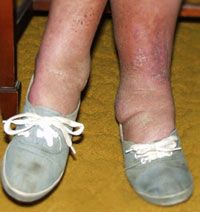People with kidney disease are more likely to have heart disease than are people without kidney disease. Heart disease is more common in people with even mild to moderate kidney disease than in those of the same age and sex without kidney disease. The cause of death in people with kidney failure is most often heart disease.
On the other hand, kidney defects are common among people with heart failure and are associated with an increased risk of death. This association is observed in people of all ages. One recent study of heart failure patients reported that the majority of patients had some degree of abnormal kidney function, and that patients who did had an approximately 50 percent increased risk of death compared with patients with normal kidney function.
Advertisement
Another recent study identified eight separate risk factors for death among women with heart failure. Of these, abnormal kidney function was the most common, and it was associated with the greatest increased risk of death. The authors of the study concluded that abnormal kidney function, even when mild, was a major predictor of death among women with heart failure.

